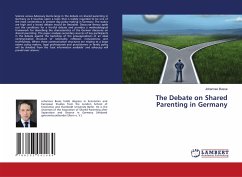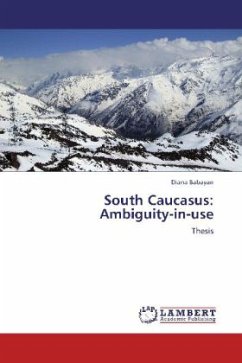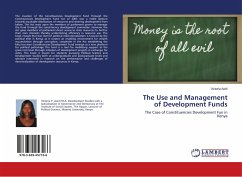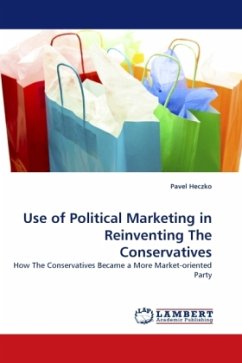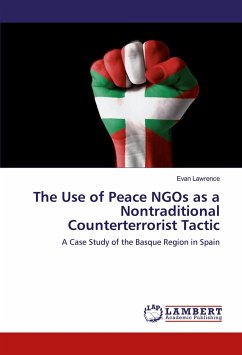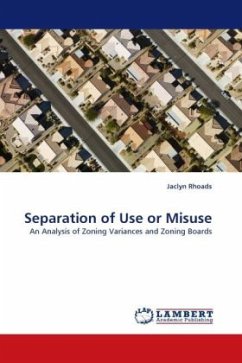
Separation of Use or Misuse
An Analysis of Zoning Variances and Zoning Boards
Versandkostenfrei!
Versandfertig in 6-10 Tagen
45,99 €
inkl. MwSt.

PAYBACK Punkte
23 °P sammeln!
In the United States, sprawl, simply known as unplanned suburban development, is consuming land at a rate greater than the population increase. Sprawl continues for several reasons, many of which are uninvestigated. This book evaluates the process of zoning variances and zoning boards: the composition of the zoning board, the board's decision-making, and the result of their decision- making on the environment. The process is compared to Molotch's Growth Machine theory which states that localities are in economic competition with other localities, therefore entities and individuals that support...
In the United States, sprawl, simply known as unplanned suburban development, is consuming land at a rate greater than the population increase. Sprawl continues for several reasons, many of which are uninvestigated. This book evaluates the process of zoning variances and zoning boards: the composition of the zoning board, the board's decision-making, and the result of their decision- making on the environment. The process is compared to Molotch's Growth Machine theory which states that localities are in economic competition with other localities, therefore entities and individuals that support those entities will work towards the economic growth of their area as it benefits themselves in return. As a result of the Growth Machine process, regulations are hardly enforced, specifically when zoning becomes too burdensome on the real estate market, zoning is changed and/or variances given. This work represents an evaluation of the zoning board dynamics and decision-making, the environmental effects of zoning variances, and how zoning variances and boards play an important role in the contribution to sprawling development.



